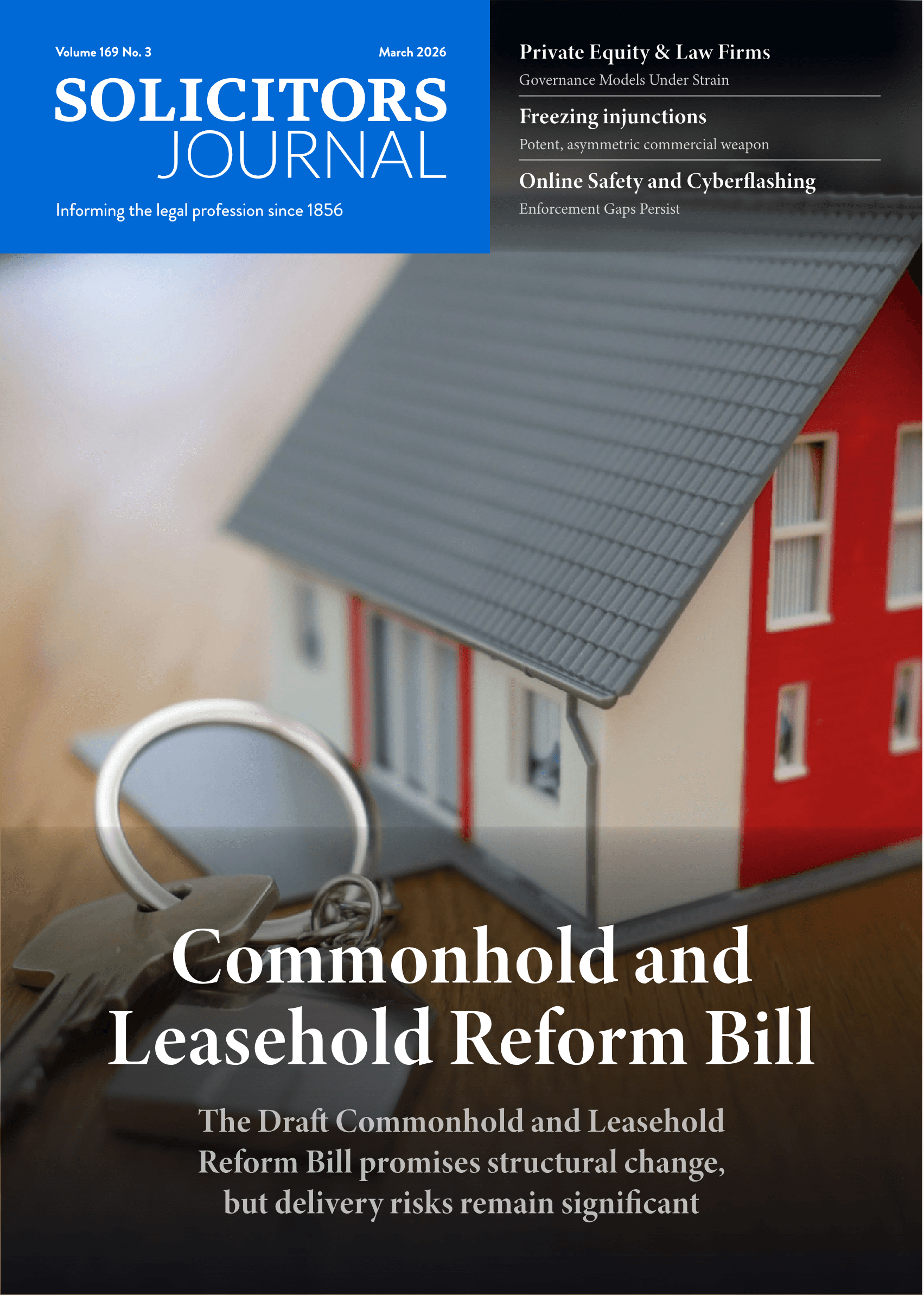Rights of third-country nationals
__WEB.jpg&w=1920&q=85)
Paul Stanley QC discusses the extent to which parents who are not EU citizens can derive EU rights of residence from their dependent children
A persistent and complex theme in EU free movement law has concerned what might be called parasitic or derivative rights '“ situations where a person who might not personally qualify for a particular free movement right can benefit indirectly because of their relationship to someone else who does.
In two recent cases (Case C-304/14 CS and Case C-165/14 MarÃn, both delivered on 13 September 2016), the Court of Justice of the European Union (CJEU) has discussed the circumstances in which third-country nationals can benefit from rights enjoyed by their children, and when they may lose the right to do so.CS was a reference from the UK. CS, a third-country national, had married a UK citizen. She was the sole carer for a child from that marriage, who was of course a UK citizen. She had been convicted of a criminal offence and sentenced to 12 months' imprisonment, as a result of which she was subject to automatic deportation unless that would breach (inter alia) an EU law right.
MarÃn was a reference from Spain involving a Colombian national. He had two children, both EU nationals, for whom he was the sole carer (the mother's whereabouts were unknown). He was convicted of an offence for which he was sentenced to nine months' imprisonment, as a result of which he was in principle refused a residence permit.
Each case then presented
a similar fact pattern. In both cases, EU law had nothing to
say about the expulsion of the third-country national so far
as the convicted adult was concerned. But the difficult question was whether they could be required to leave the country given that in practical terms that would mean the child or children would have to leave as well. (In MarÃn one of the children was Polish; that raises some slight complications, but can be ignored for present purposes.)In principle it has long been established that parents who
are not EU citizens can derive
EU rights of residence from their dependent children. That right has been extended by the
CJEU not just to those who accompany EU citizens who are exercising free movement rights but sometimes even to those on whom minor EU citizens depend in their own country of citizenship.
How is this principle affected if the parent commits a criminal offence? In CS, the UK government apparently argued that the commission of an offence simply took the case entirely outside the basic principle. This is a surprising submission. The parent's right never depends on their own 'merits', but is derived from and designed to protect the child's rights. So it would be surprising if the parent's criminal conduct (however minor) was absolutely decisive.
The opposite argument, indeed, looks superficially more attractive. Since the parent's right is designed to protect the child, why should the parent's conduct ever be relevant? But that mistakenly treats the matter as one of punishment. It is a consistent theme of the treaty rights, and the legislation adopted to give effect to them, that they recognise the possibility of limitation on grounds of public policy and public security. If public security or public policy would justify a restriction on an EU citizen's own rights, then they must equally be capable of justifying a restriction on derived rights.Nevertheless, as the CJEU emphasised, the tests are stringent, and a blanket or rule-based approach is not justifiable. The decision to expel the third-country national will affect not just them, but also the free movement rights of any affected child, and their rights
of respect for privacy and family life, which EU law also requires
to be taken into account in reaching any decision.
It follows that there can be
no automatic assumption or presumption that the parent's criminal conduct justifies removal. The decision must follow 'specific assessment' of the particular circumstances
of the case. To satisfy the requirements of proportionality, it must be shown that the parent's presence constitutes
a 'genuine, present, and sufficiently serious threat affecting one of the fundamental interests of society or of the host member state'.
Effectively, this means that
the burden on the host member state to justify expulsion of a third-country national on whom a minor EU citizen depends is equated with that which applies to an EU citizen who has exercised their own free movement rights. This is, when one thinks about it, correct. Although it is easy to think of deportation following criminal conviction as an aspect of punishment, that is never the
EU approach.
In this case, that cuts both ways. On the one hand, it means that EU law stands ready to insist that before taking action against the third-country national, the member state must take into account the effect that action will have on third parties, who enjoy rights under EU law. On the other hand, it means that EU law permits action to be taken
if it is justified in the public interest, even if in doing so the rights of innocent third parties are indirectly affected. SJ
